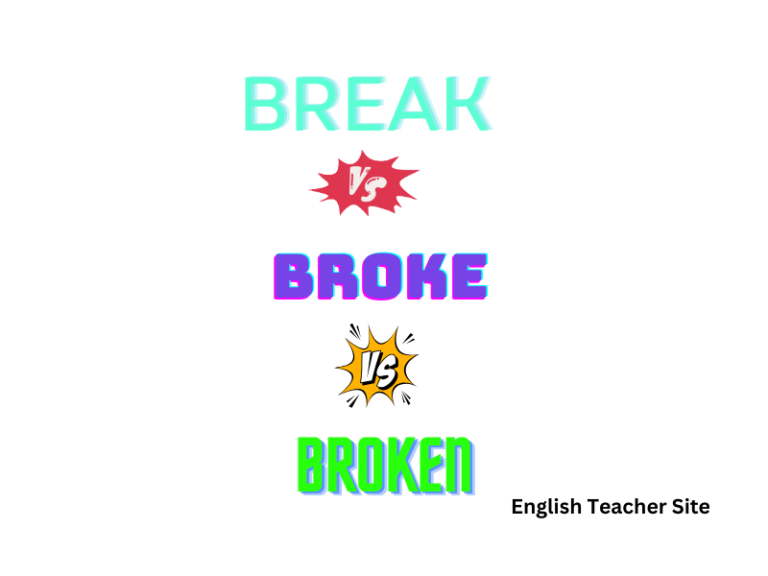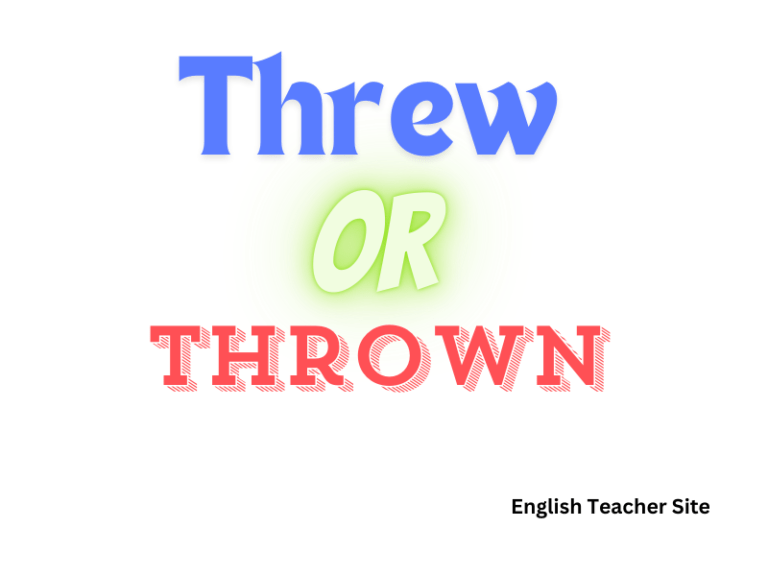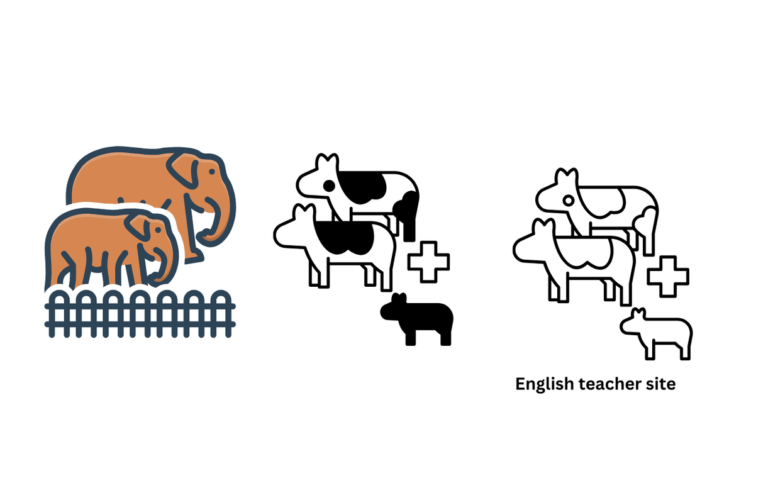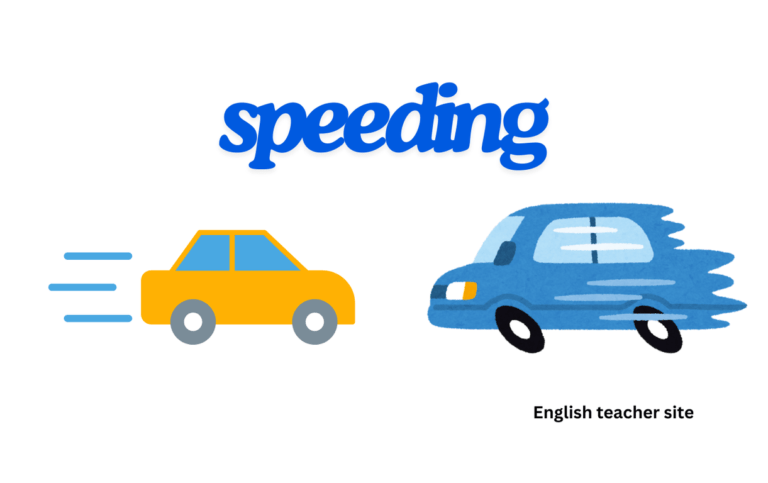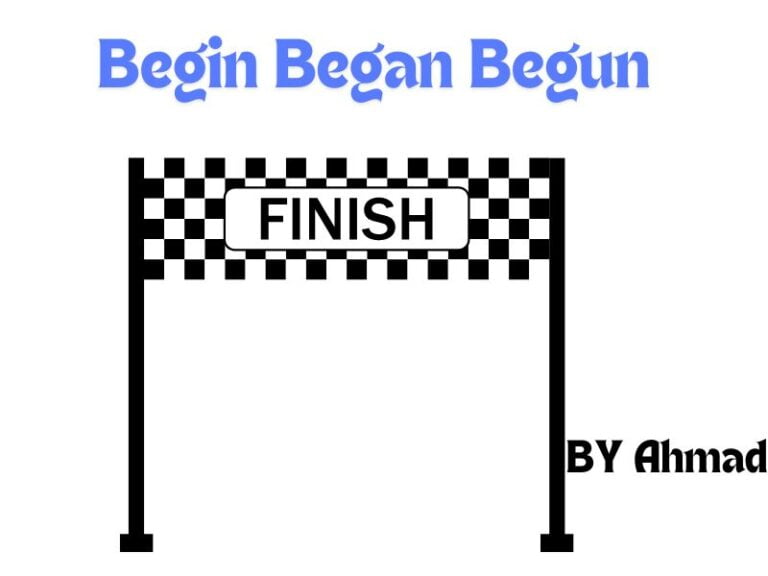Fell or Fallen? Know the Difference Today!
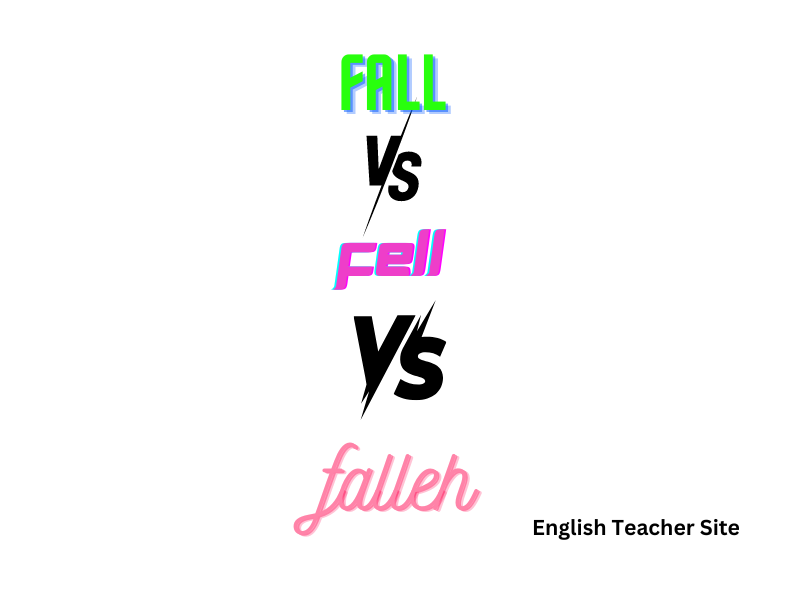
Answer first:
The past tense of fall is fell. The past participle of fall is fallen. Use fell when describing a completed action in the past. Use fallen with auxiliary verbs like has, have, or had to indicate a state or condition resulting from falling.
Why Mixing Up Fell and Fallen Is More Common Than You Think
Even confident English speakers stumble over these two words. It happens because both refer to the verb fall and sound similar. Add to that the complexity of tenses and participles, and it’s no wonder people get confused. The difference is subtle, but getting it wrong can make your speech or writing seem careless.
This guide clears it all up.
Fell or Fallen? The Grammar Rules You Need to Know
Past Tense vs Past Participle: Breaking It Down
- Past Tense (Fell): Describes a finished action. It’s straightforward.
- Past Participle (Fallen): Needs a helper verb (has, have, had). It suggests a result, condition, or ongoing relevance to the present.
Think of fell as a standalone verb and fallen as needing backup.
How Fell Works in a Sentence with Easy Examples
Fell stands on its own. It doesn’t need a helper.
- She fell asleep during the movie.
- They fell behind in the race.
It describes an action that is over and done.
When to Use Fallen Correctly Without Overthinking It
Use fallen when the sentence includes has, have, or had. It’s often used to indicate the state something is in because it has fallen.
- He has fallen on hard times.
- The snow had fallen overnight.
A good rule of thumb: If you’re using has, have, or had, you need fallen.
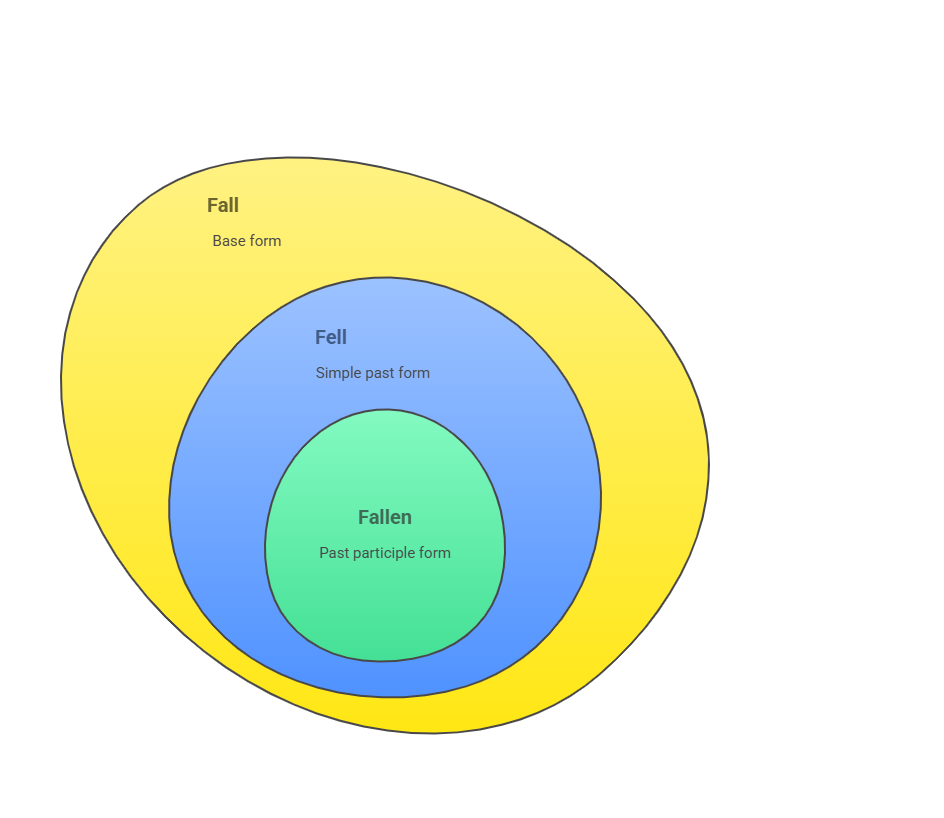
Common Mistakes with Fell and Fallen
Mistake 1: Using Fell When You Need Fallen
Incorrect: The apple has fell from the tree.
Correct: The apple has fallen from the tree.
Using fell after an auxiliary verb is incorrect. If you see has, have, or had, fallen is your word.
Mistake 2: Confusing Fallen with Other Verb Forms
People often confuse fallen with other irregular verbs like flew and flown, or went and gone. The same principle applies: participles (fallen, flown, gone) need helper verbs.
How to Spot and Fix These Mistakes Instantly
- Look for auxiliary verbs (has, have, had). If they’re there, fallen is correct.
- If there’s no auxiliary, and you’re simply talking about something that happened, use fell.
- Read the sentence aloud. If it sounds clunky, you might have the wrong form.
Fell or Fallen in Real Life: Examples That Make It Clear
Everyday Conversations Where People Get It Wrong
Incorrect: I have fell down these stairs before.
Correct: I have fallen down these stairs before.
Easy Example Sentences You Can Remember
- She fell during the hike.
- She has fallen behind on her assignments.
- The tree fell in the storm.
- Many trees have fallen this season.
Quick Tips to Always Get Fell or Fallen Right
The 3-Second Rule for Choosing the Right Word
- Spot an auxiliary verb? Use fallen.
- No helper verb? Stick with fell.
- Can’t decide? Reread the sentence with both words and see which one makes sense.
Handy Phrases and Memory Tricks That Work Every Time
- Fell stands alone.
- Fallen is never lonely; it brings a friend (helper verb).
- If you fell, it happened in the past. If you’ve fallen, you’re probably still on the ground!
Practice Makes Perfect: Test Your Knowledge
Short Quiz: Fell or Fallen? Choose the Correct Word
- The boy has ___ off his skateboard.
- She ___ asleep at her desk.
- They have ___ into debt.
- He ___ from the ladder last week.
Answers and Explanations to Build Your Confidence
- Fallen (helper verb has)
- Fell (simple past)
- Fallen (helper verb have)
- Fell (simple past)
Conclusion
The more you practice, the faster you’ll spot the difference. Reading and writing regularly will sharpen your grammar instincts. After fell and fallen, tackle other tricky pairs like went vs gone, lay vs laid, and flew vs flown. Mastering these will elevate your communication.
Source
2. Harper Douglas, “Etymology of fall,” Online Etymology Dictionary https://www.etymonline.com/word/fall
My name is Khamis Maiouf. I am the creator of the English Teacher Site, dedicated to providing valuable resources and insights for students around the world. With a passion for education and a commitment to helping students enhance their skills, I aim to make English teaching more effective and enjoyable for both educators and students.

